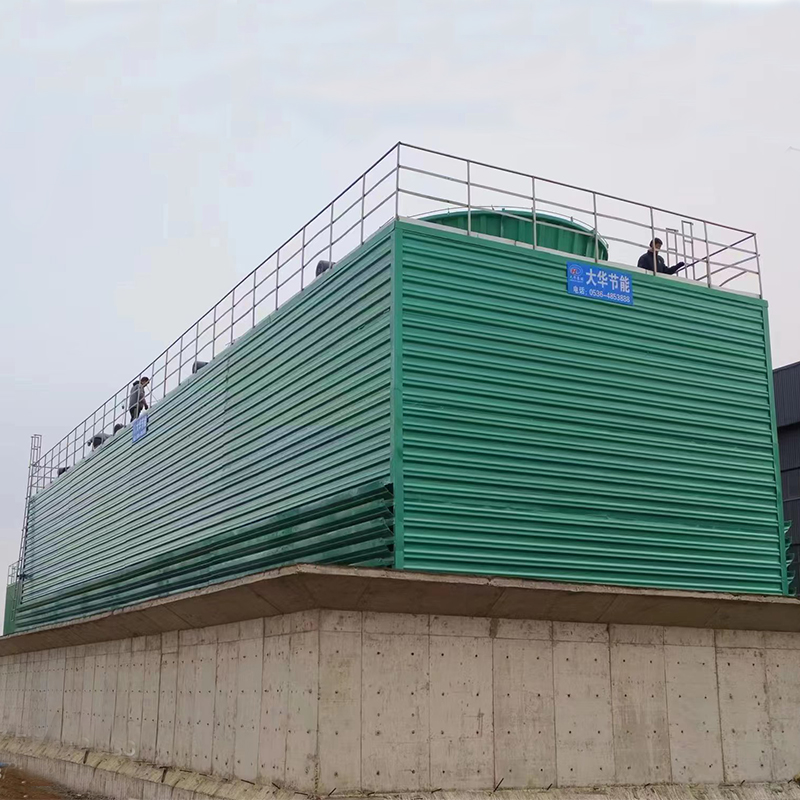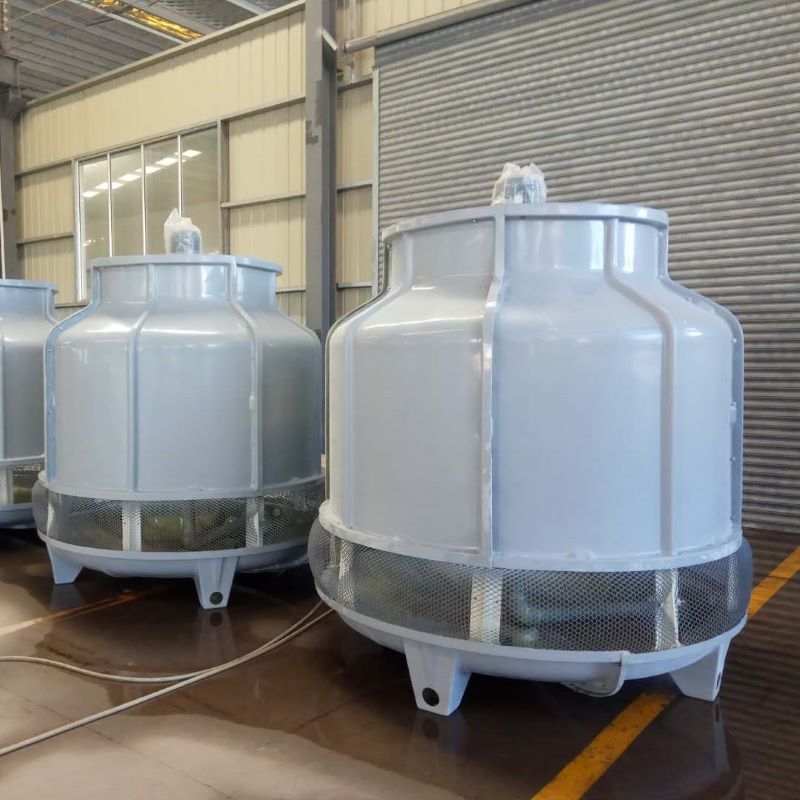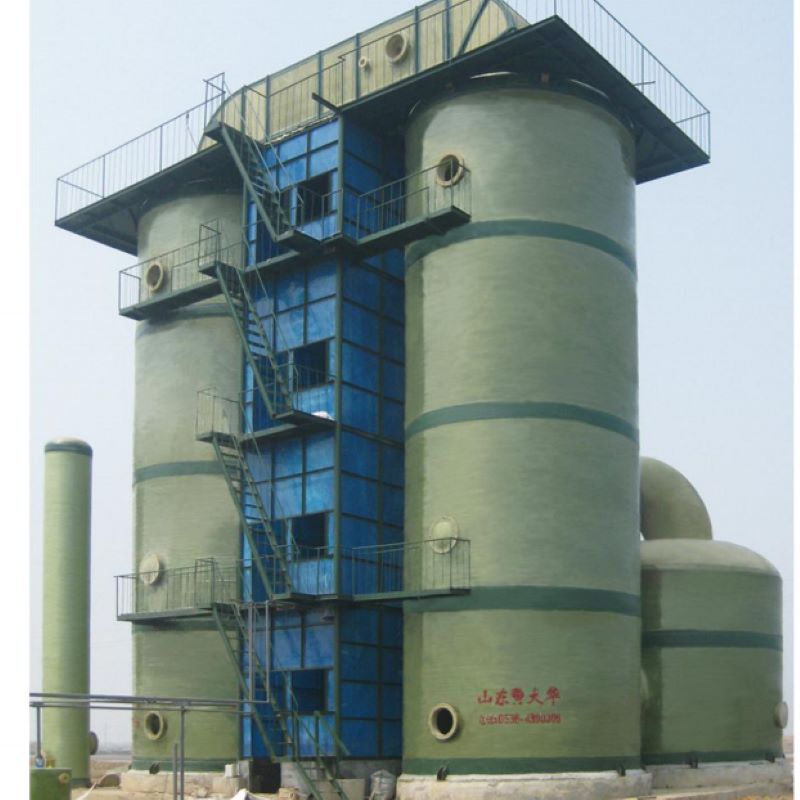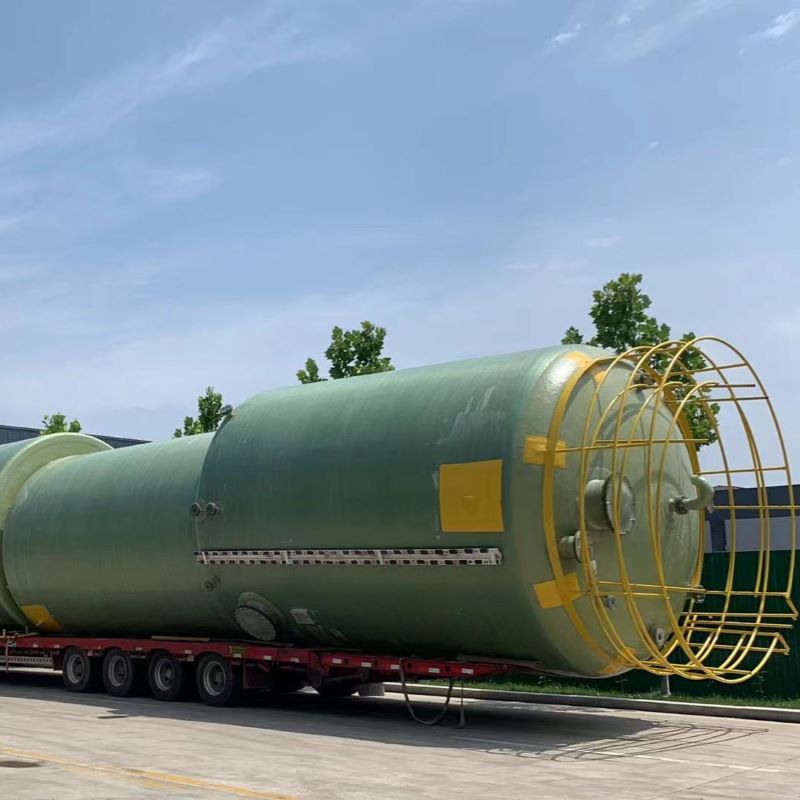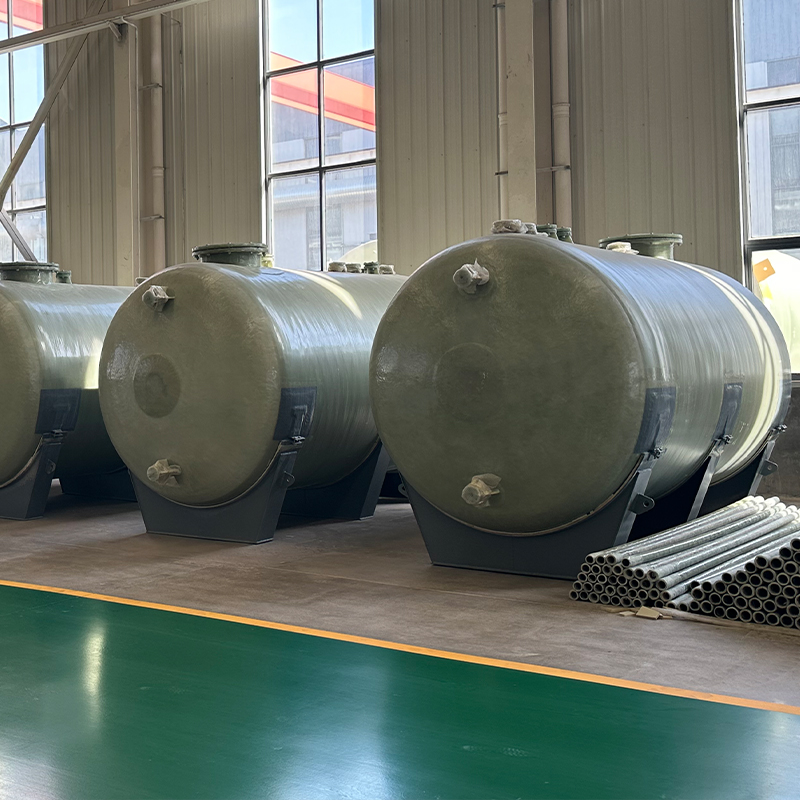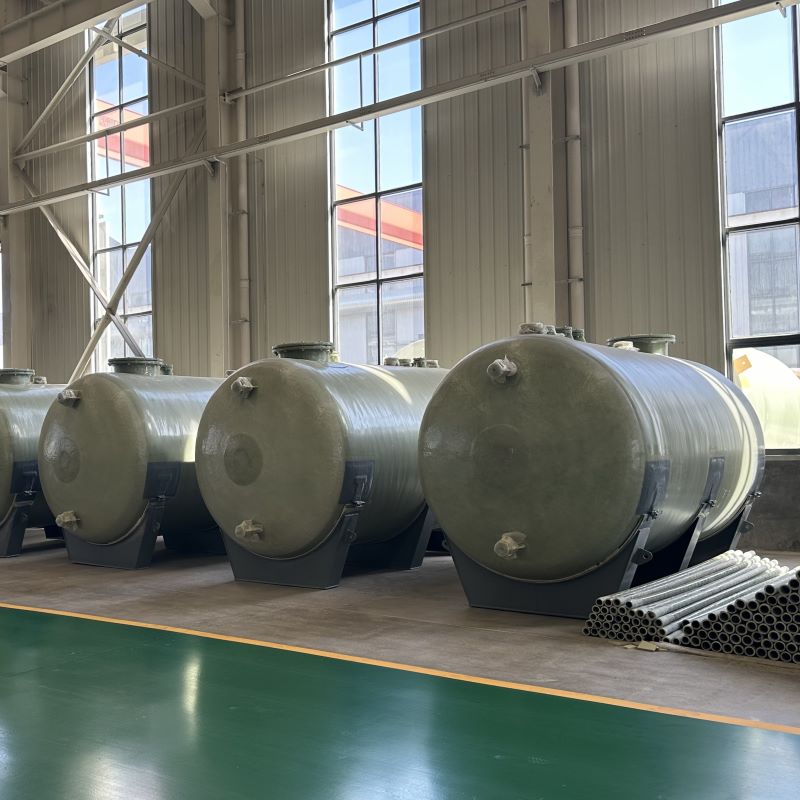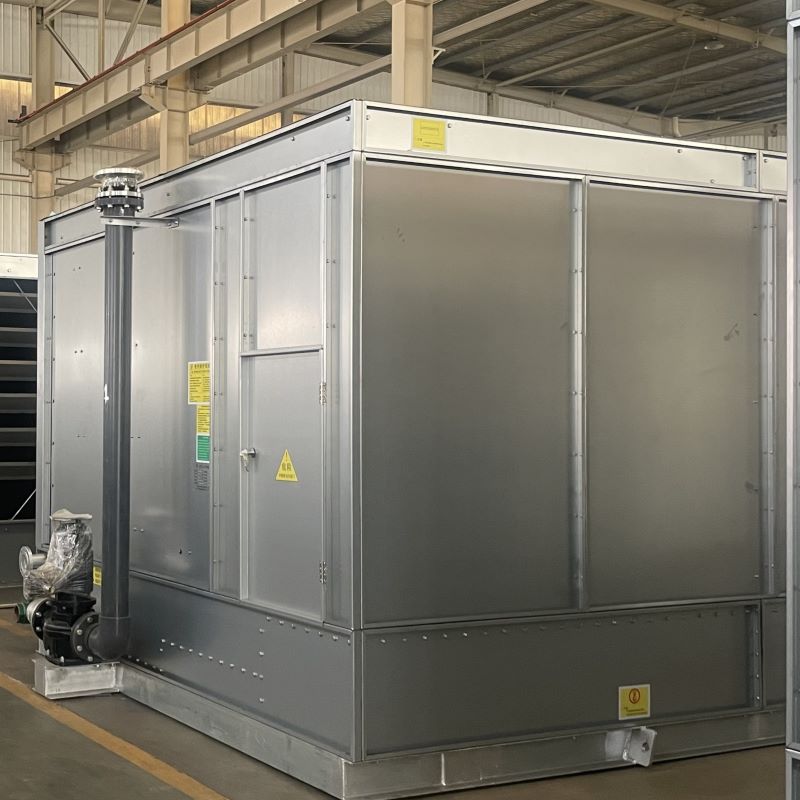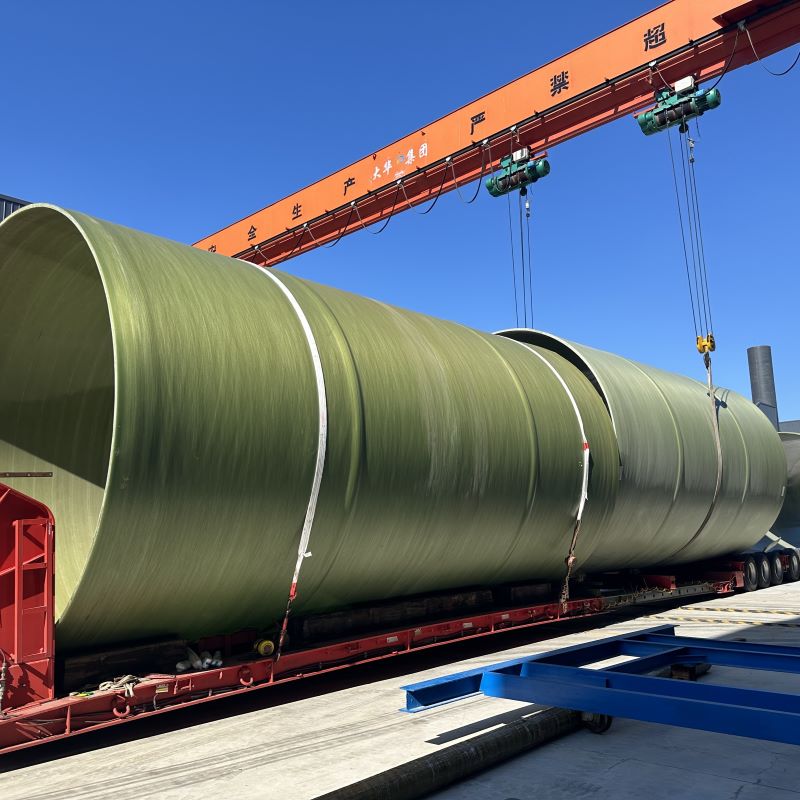
FRP Tank supplier
Understanding the Role of an FRP Tank Supplier
In the world of industrial containers, an FRP Tank Supplier plays a critical role. But what sets apart the reputable suppliers from the others? A dive into the intricacies of working with these suppliers reveals much about product quality, customization capabilities, and industry challenges.
The Basics of FRP Tanks
FRP, or Fiber Reinforced Plastic, tanks are a staple in industries where chemical resistance, durability, and longevity are pivotal. These tanks find applications in water treatment, chemical storage, and even food processing. The materials themselves are a blend of polymer matrices, reinforced with fibers, usually glass fibers. However, the specs can vary significantly, which is where the choice of supplier becomes crucial.
When considering an FRP Tank Supplier, it’s not just about the tank itself. A reliable supplier will offer insight into the tank's structural specifications and help tailor solutions to meet specific industrial needs. For instance, some might need a particular resin to resist specific chemicals, while others might require unique dimensional designs for spatial efficiency.
Finding the right supplier often involves assessing their background, looking at past projects, and even getting a sense of their customer service approach. After all, a supplier that understands your industry can be a significant asset, potentially saving you time and costs in the long run.
Customization and Flexibility
An effective FRP Tank Supplier should offer a high degree of customization. This isn't merely about choosing a size or color but understanding how modifications can impact long-term durability and performance. I've worked on projects where suppliers provided invaluable advice on enhancing the tank's resistance to UV or thermal stress, crucial for outdoor applications.
One fascinating aspect of working with FRP is its flexibility. Unlike metal or concrete, FRP can be molded into complex shapes without compromising its structural integrity. But, not every supplier has the capability to manage such customizations efficiently.
Here, it's worth mentioning companies like the one behind this website, who often present case studies showcasing their ability to handle bespoke projects. This not only demonstrates their expertise but also helps potential clients visualize possible solutions for their own needs.
Quality and Durability
Quality assurance is a pivotal topic when discussing an FRP Tank Supplier. Unfortunately, not all suppliers maintain rigorous testing protocols, which can lead to product failures down the road. Understanding the supplier’s quality control measures is essential.
I recall a scenario where a tank from a less scrupulous supplier failed under stress, leading to significant downtime and costs. It was a stark lesson in the importance of not cutting corners when it comes to verifying a supplier's adherence to industry standards.
Suppliers should willingly share information about their testing processes and certifications. This transparency is a hallmark of a supplier committed to quality and customer satisfaction.
Challenges in the FRP Industry
The landscape for FRP is ever-evolving, with new environmental regulations and material innovations regularly influencing the industry. Navigating these changes can be challenging but also offers opportunities for suppliers to distinguish themselves by staying ahead of the curve.
Issues like waste management in FRP production or adapting to greener resins are challenges I’ve seen suppliers tackle with varying success. A proactive supplier who invests in research and development is often better equipped to address these industry shifts.
Historically, the companies that thrive are those that anticipate regulation changes early and innovate their processes accordingly. This foresight positions them and their clients for long-term success.
Conclusion: Selecting the Right Supplier
At the end of the day, choosing an FRP Tank Supplier involves weighing multiple factors: product quality, customization capabilities, industry experience, and forward-thinking practices. By focusing on suppliers that blend technical expertise with customer-centric service, you’re more likely to find a partner that can offer long-term benefits.
Reflecting on past experiences, it's become clear that a solid supplier relationship can significantly impact project success. Therefore, investing time in thorough research and evaluation of potential suppliers is not just wise—it's essential.
Ultimately, the goal should be to form a partnership with those who not only understand your industry needs but also have the foresight to help navigate future challenges. And perhaps, in this regard, contacting businesses with a robust online presence, like those on this website, can be a step in the right direction.
Соответствующая продукция
Соответствующая продукция
Самые продаваемые продукты
Самые продаваемые продуктыСвязанный поиск
Связанный поиск- high quality evaporative cooler tower fan
- Best High-Efficiency Energy-Saving Closed-Circuit Cooling Tower Manufacturer
- China pp frp storage tank price
- OEM Wet electrostatic precipitator supplier
- OEM best rooftop evaporative cooler supplier
- China Horizontal FRP Tank Manufacturer supplier
- high quality energy efficient evaporative cooler Manufacturer
- battery evaporative cooler Manufacturer
- Best FRP anode tubes factory
- China canature frp tank supplier



